Central sleep apnea is a sleep disorder in which your breathing stops intermittently while you sleep. During the night, you may have multiple apnea episodes. If your breathing is interrupted, your brain may be signaling a problem. For a moment, your brain fails to send the signals to your muscles to breathe.
There is a difference between central sleep apnea and obstructive sleep apnea. Sleep apnea occurs when airways become blocked resulting in interruptions of breathing. The airways of people with sleep apnea aren’t blocked. It is the brain-muscle connection that is causing your breath to be short.
It caused by the central nervous system is less common than the obstructive type. About 20 percent of all cases of sleep apnea are caused by central sleep apnea, according to the American Sleep Apnea Association (ASAA).
Check out this article to learn about the causes, symptoms, and treatments of central sleep apnea.
Read: Circadian Rhythm Sleep Disorder
What is central sleep apnea?
Central sleep apnea is somewhat less well known than obstructive sleep apnea, which affects an estimated 23 million people in the US. Its symptoms are similar to those of obstructive sleep apnea, but its causes are quite different.
Each case requires an accurate diagnosis so that treatment for the underlying problem can begin. That would reduce the chances of long-term problems.
Sleep apnea generally occurs when a person experiences pauses in breathing patterns while they are asleep. They can range in severity and duration.
Central Vs. Obstructive sleep apnea
Obstructive sleep apnea and central sleep apnea both have abnormal breathing during sleep, but their causes differ.
During sleep, the airway is blocked, causing obstructive sleep apnea, which occurs when a person struggles to breathe. It is common to hear snoring and fragmentation of sleep due to the blockage. Other symptoms of OSA include daytime fatigue, high blood pressure, and depression.
There is no blockage of the airway in central sleep apnea. It is more likely that breathing can be stopped because the brain and muscles that control breathing don’t work properly. People with CSA repeatedly stop breathing while sleeping as a result.
What causes central sleep apnea?
The majority of apnea cases are the result of underlying health conditions. If you experience apnea, your brainstem fails to give your breathing muscles the information they need. There is a section of your brain that is connected to your spinal cord called the brainstem. You can develop a disorder if you have a health condition that affects your brainstem, spinal cord or heart.
Some examples are:
- Stroke
- Heart attack
- Congestive heart failure
- Cheyne-Stokes breathing, a weak breathing pattern
- Brain inflammation (encephalitis)
- Cervical spine arthritis
- Movement, balance, and muscle control are affected by Parkinson’s disease (age-related decline of certain nerve systems)
- Back surgeries and radiation treatments may also cause problems
Drug-induced apneas may also arise as a result of certain medications. An opioid drug can affect breathing patterns by causing powerless pain relief. When you have an irregular pattern of breathing, it’s possible you stop breathing temporarily during this period.
It can be caused by drugs including:
- Codeine
- Morphine
- Oxycodone
Idiopathic central sleep apnea occurs when your doctor is unable to identify the cause.
Read: Nightmare Disorder
What are the symptoms of central sleep apnea?
Short periods when breathing stops during sleep are a common symptom of central sleep apnea. However, some people breathe very shallowly rather than stopping altogether. It is possible to wake up feeling breathless. Insomnia can be a consequence of not getting enough oxygen in your body throughout the night.
This disorder can cause other symptoms during the day due to an interrupted sleep cycle. Sleepiness during the day may make you feel groggy, and you may have difficulty concentrating on tasks. You may also feel tired when waking up in the morning.
Additionally, Parkinson’s disease or other neurological conditions can cause central sleep apnea to be accompanied by these symptoms:
- Swallowing difficulties
- Changes in speech patterns
- Voice changes
- Generalized weakness
Diagnosis
Polysomnography is a sleeping study that your doctor orders to diagnose central sleep apnea. It is done while you are asleep at a sleep center. Your body and head will be hooked up to electrodes to measure oxygen levels, brain activity, breathing patterns, heart rate, and lung function while you sleep.
The results of your polysomnography will be reviewed by your doctor, neurologist, and sometimes your cardiologist. This can help you figure out what’s causing your apnea.
MRI scans of the head or spine can also detect the disorder. MRIs use radio waves to take pictures of your organs. An abnormality in the brain or spine may be the cause of central sleep apnea, as revealed by the test.
Read: Hypersomnia Disorder
What are the treatments for central sleep apnea?
Treatment for central sleep apnea begins with treating underlying medical conditions. There are several types of medications that provide relief from conditions such as congestive heart failure, Parkinson’s disease, and others.
Your breathing may cease during sleep if you are taking opioid medications. If your breathing mechanism is severely impaired, your doctor may prescribe acetazolamide.
Many people with central sleep apnea benefit from oxygen supplementation and air pressure regulation during sleep.
Continuous positive air pressure (CPAP)
While you sleep, your airways are continually pressured by CPAP. A mask provides pressurized air throughout the night to your nose and mouth. CPAP can be beneficial for people suffering from central sleep apnea, as well as those suffering from obstructive sleep apnea.
Bi-level positive air pressure (BPAP)
During this treatment, you inhale air at a higher pressure and exhale it at a lower pressure. The mask is used as well during this treatment.
Adaptive servo-ventilation (ASV)
You breathe while you sleep with ASV. Computerized systems keep track of the amount of air you breathe. Apnea episodes are prevented by a pressurized breathing system.
Read: Restless Legs Syndrome
Oxygen supplementation
The purpose of oxygen supplementation is to increase the amount of oxygen in your lungs during sleep.
Sleeping with oxygen in the nose and airways takes place during the night. In turn, this can reduce the risk of sleep apnea by making sure the body has adequate oxygen.
Medication
There are also medications that can assist the body in regulating breathing patterns at times.
Alternatively, people with sleep apnea may benefit from adjusting their existing medications. A person who is taking narcotics or opioids for pain management might need to decrease their dosage to treat their sleep apnea symptoms.
Phrenic nerve stimulation
Diaphragmatic and respiratory systems are controlled by the phrenic nerve. Therapy can control sleep apnea symptoms by stimulating this major nerve during sleep.
Complications
There are various health risks associated with central sleep apnea. Complications may include:
Fatigue
Sleep apnea is characterized by repeated awakenings that prevent normal, restorative sleep. An individual with central sleep apnea is likely to be extremely fatigued, sleepy and irritable during the day.
When you are working, watching television, or driving, you might find it difficult to concentrate and fall asleep.
Cardiovascular problems
It can adversely affect heart health by causing sudden drops in blood oxygen levels.
Hypoxemia (low blood oxygen levels) can worsen sufferers’ prognoses if they have underlying heart disease.
What is the long-term outlook?
The prognosis may hinge on a number of factors, including adherence to a treatment plan and the effectiveness of underlying conditions being treated by doctors.
While some people may have trouble getting used to devices like CPAP and oxygen machines, they can help to improve their symptoms over time.
A person with central sleep apnea, if left untreated, can experience a wide range of health problems in the future.
People with sleep apnea experience significant disruptions in sleep. When sleeping, the brain and body should be able to rest and recharge, as well as be restful. In contrast, sleep apnea causes the brain to be more active and the body to become more stressed.
The condition of sleep apnea is therefore linked to a number of health problems including:
- Inflammation
- Oxidative stress
- Vascular dysfunction
- Issues with metabolism
- Changes in the nervous system
When left untreated, these issues can lead to other illnesses, including:
- Hypertension
- Heart disease
- Heart failure
- Stroke
- Diabetes
- Obesity
- Arrhythmia
Sleep apnea can lead to serious consequences if the underlying cause is not detected and treated. If the underlying cause can be addressed and complications avoided, then the outlook is favorable.
In most cases, a person’s symptoms of sleep apnea can be greatly improved or even completely gone when a doctor is able to find and treat the underlying cause.
Read: Hypersomnolence Disorder
Summary
Sleep apnea occurs when a person stops breathing periodically throughout the night. In central sleep apnea, faulty signals in the brain do not tell the respiratory muscles to breathe correctly.
There are several potential causes, and properly diagnosing the cause is the key to finding the correct form of treatment. Getting prompt and early treatment for central sleep apnea may help reduce the risk of long-term complications. Properly treating the underlying cause of central sleep apnea can stop or greatly reduce the apnea itself in many cases.
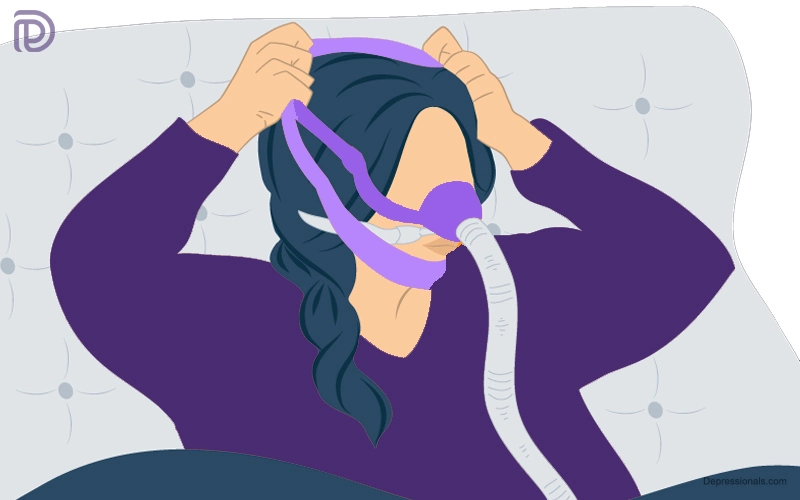
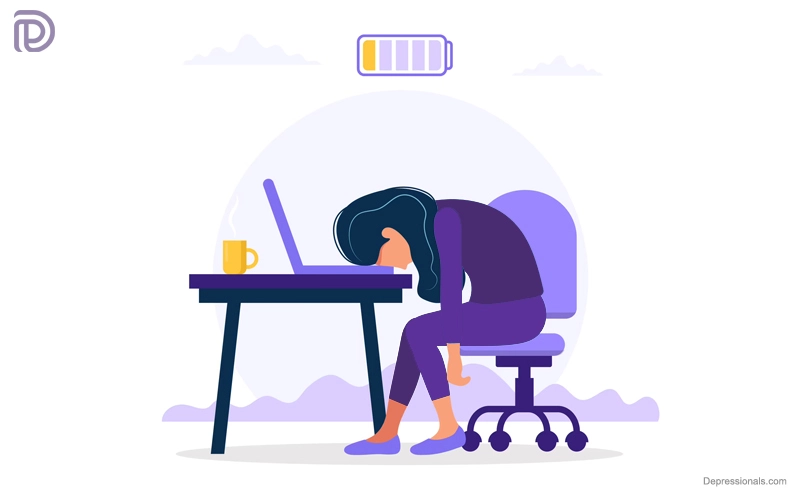
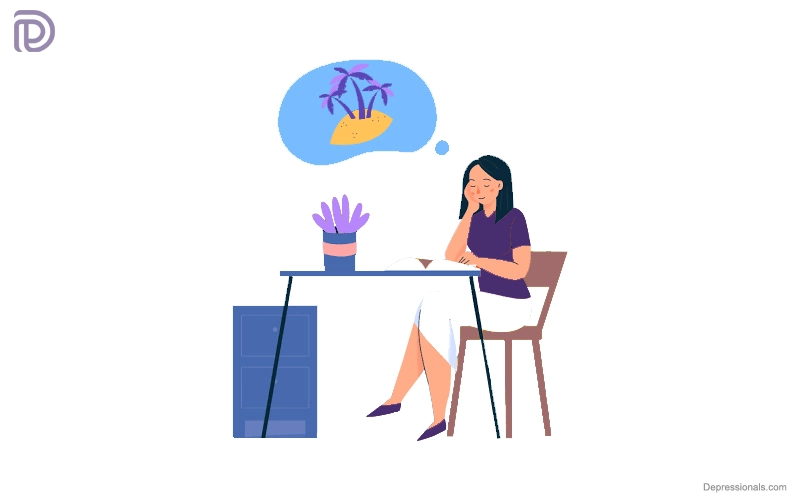
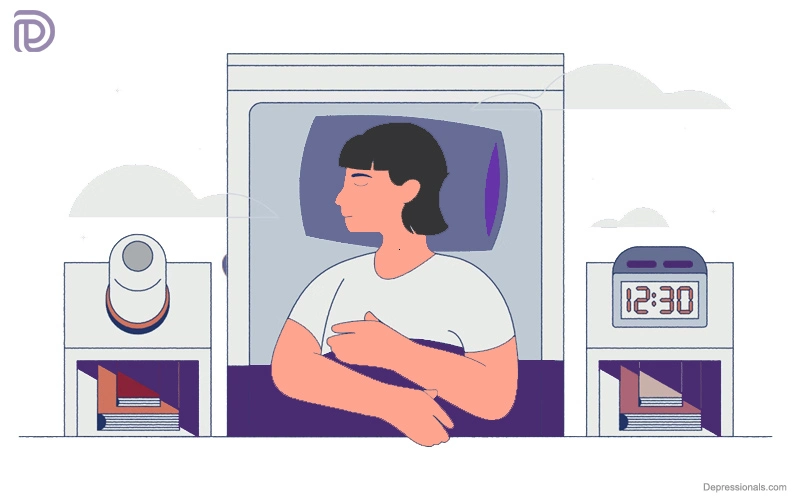
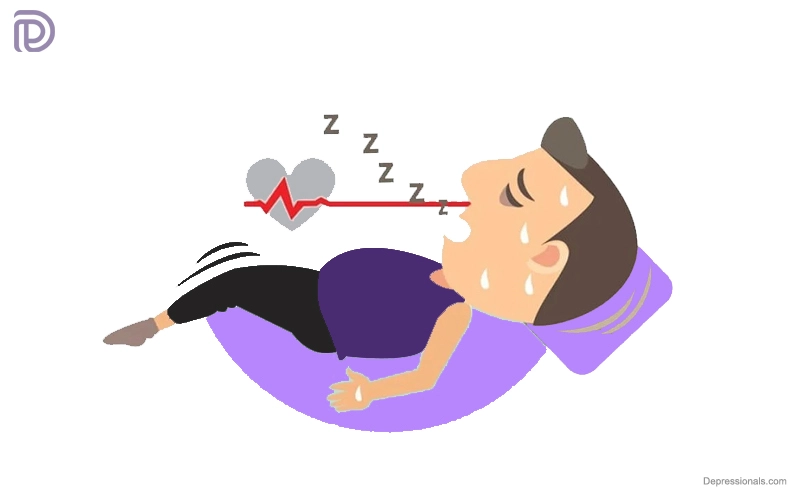

I just could not leave your website before suggesting that I actually loved the standard information a person supply in your guests? Is going to be back regularly in order to check out new posts.
You are my breathing in, I own few web logs and rarely run out from brand :). “The soul that is within me no man can degrade.” by Frederick Douglas.
The information you have provided is very useful to me.